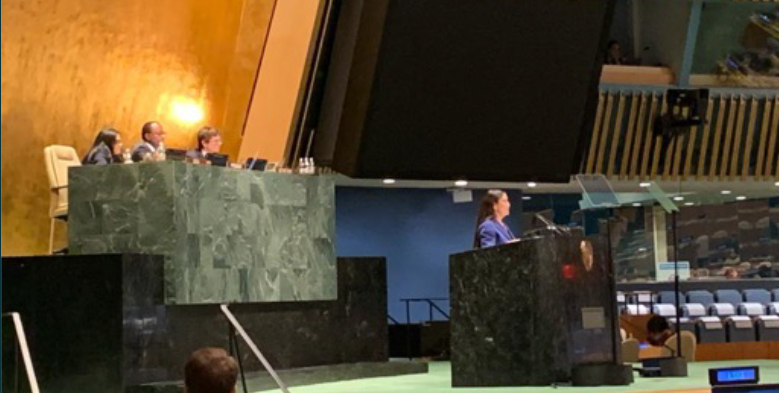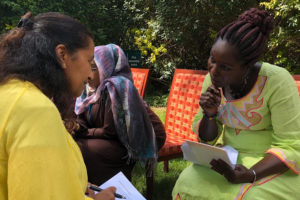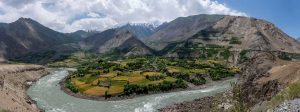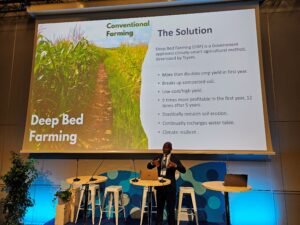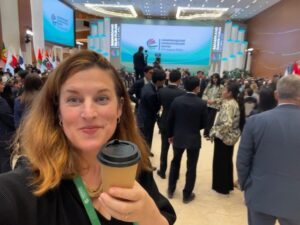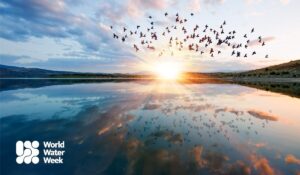Women in Water Diplomacy Network After Action Report 2023
Article abstracted from Koch, Elizabeth and Ekta Patel, et al. 2023. Women in Water Diplomacy Network After Action Report: The Water Diplomacy Symposium and Network Engagement in the 2023 UN Water Conference.


Publication available in full here.
In August 2022, the Women in Water Diplomacy Network launched the ‘A Path Forward for Women, Water, Peace and Security’ Global Strategy at the World Water Week. The Global Strategy is built around Five Strategic Pillars harmonizing prioritized actions across the growing global Network to advance the Network’s overarching objective to improve gender equality in high-level decision making in transboundary basins with focus on women’s leadership in regional dialogues around shared waters – with resultant positive implications for regional peace and human security. Strategic Pillar Four aims to ‘contribute to elevating dialogue, knowledge, and experience around the intersecting themes of the Women in Water Diplomacy Network (i.e., women, water, peace and security) as part of basin wide, regional, and global dialogue processes.’ Pillar Four specifically identified the UN Water Conference in New York in March 2023 as a strategic and prioritized milestone for collective Network engagement to tangibly impact the trajectory of water and peace related discourse in transboundary basins globally. As such, the Network’s engagements at and around the UN Water Conference specifically aimed to:
- Contribute to knowledge and experience around the intersecting themes of women, water, peace, and security at the UN Water Conference in March 2023;
- Strengthen the representation and influence of women water diplomats in water and climate global dialogue process;
- Contribute to fostering a more inclusive dialogue space by elevating the collective positive visibility of the Women in Water Diplomacy Network; and
- Engage with, hear from, and support young water professionals with a focus on young women water professionals.
About the Nework
The Women in Water Diplomacy and Water Management promotes promotes women water professionals’ participation in decision-making in the water sector and gender mainstreaming in water governance, inthe Nile region and Central Asia and Afghanistan.
The Women in Water Diplomacy network in the NileWomen in Water Management in Central Asia and Afghanistan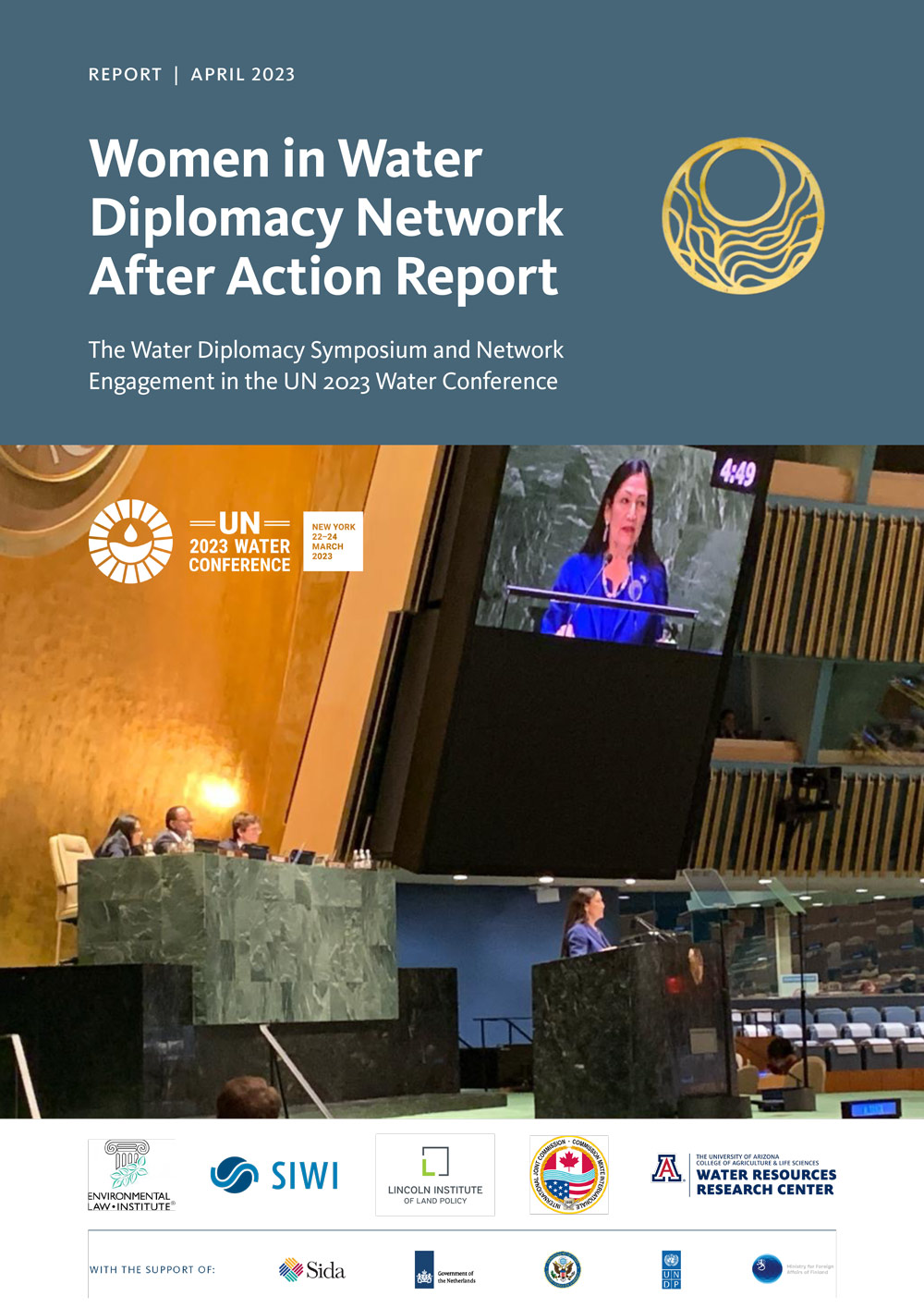
A broad spectrum of engagements was planned at and around the UN Water Conference to support the achievement of the above objectives. The two seminal focus events which anchored the Women in Water Diplomacy Network’s engagements at the UN Water Conference including the pre-conference Water Diplomacy Symposium and the Network’s official side event in the UN Headquarters. See below articles for further details on the Water Diplomacy Symposium and official Network side-event at the UN Water Conference. For the full report of Women in Water Diplomacy Network engagements at the UN Water Conference please see: Koch, Elizabeth and Ekta Patel, et al. 2023. Women in Water Diplomacy Network After Action Report: The Water Diplomacy Symposium and Network Engagement in the 2023 UN Water Conference. Available in full at here.
As in the first Global Network Forum, the Women in Water Diplomacy Network provided hard copies of the strategy as well as the ‘A Rising Tide’ Network Symbol to participants engaged in the Network’s activities during the UN Water Conference. The collaboratively designed gold ‘clip’ was worn by members and supporters of the Women in Water Diplomacy Network throughout the UN Water Conference to bring collective positive visibility to the cause of equal participation and influence of women in water related decision making. The symbol’s wide and high level adoption by the Network and its growing base of support throughout the UN Water Conference proved particularly catalytic in bringing attention to the boundary crossing movement for gender equality in transboundary water decision making, as seen in the wide range of actors who adopted it including (clockwise from left to right) Linda Thomas Greenfield, US Ambassador to the United Nations, Deb Haaland, US Secretary of Interior and other senior women water decision makers in the US delegation, Phan Thi Thu Huong, Saengrewee Suweerakan, Rojieka Mahin representing Indigenous communities in Vietnam, Thailand, and Malaysia respectively, Johanna Sumuvuori, State Secretary Ministry of Foreign Affairs, Finland, Chairwoman Amelia Flores of the Colorado River Indian Tribes and Governor Stephen Roe Lewis of the Gila River Indian Community- and many others!
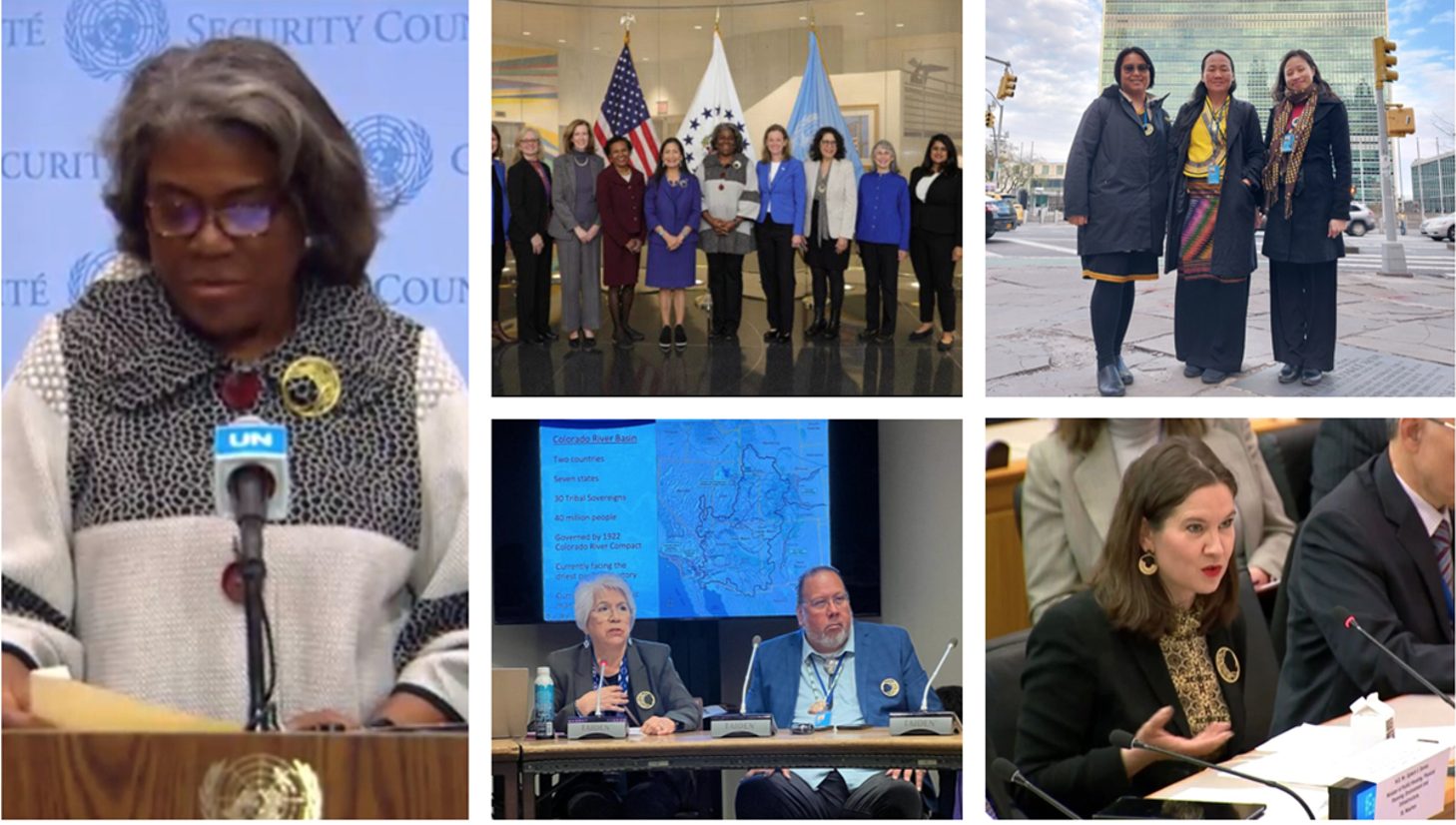
Overarching Findings and Outcomes of the Women in Water Diplomacy Network engagements at the 2023 UN Water Conference:
- Fostering inclusive dialogue and decision-making processes remains very challenging and requires targeted resources and dedicated staff to actively erode and remove barriers in support of broad participation of marginalized voices. Barriers to inclusive participation are well known, rigid and persistent and must be anticipated as part of process design.
- The Women in Water Diplomacy Network’s strong partnership with young professionals and Indigenous water leaders has proven to be particularly valuable and impactful for Network members and the Network’s objectives. There are many opportunities and positive outcomes in fostering a strong coalition of mutually supportive water experts collectively striving for inclusion in decision making. This has been frequently demonstrated through the joint engagements of various women in water related networks but also between various stakeholder communities historically marginalized from high level decision making in the water sector.
- While actively working to bring new voices into high level water dialogues and debates like the UN Water Conference is essential, significant benefits for broader inclusion efforts can also be leveraged by supporting voices and actors long established in the water sector to create space for the next generation of water leaders.
